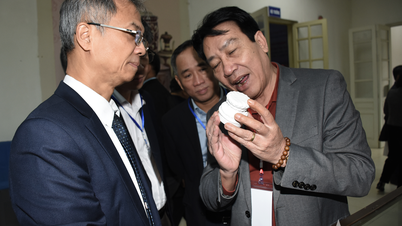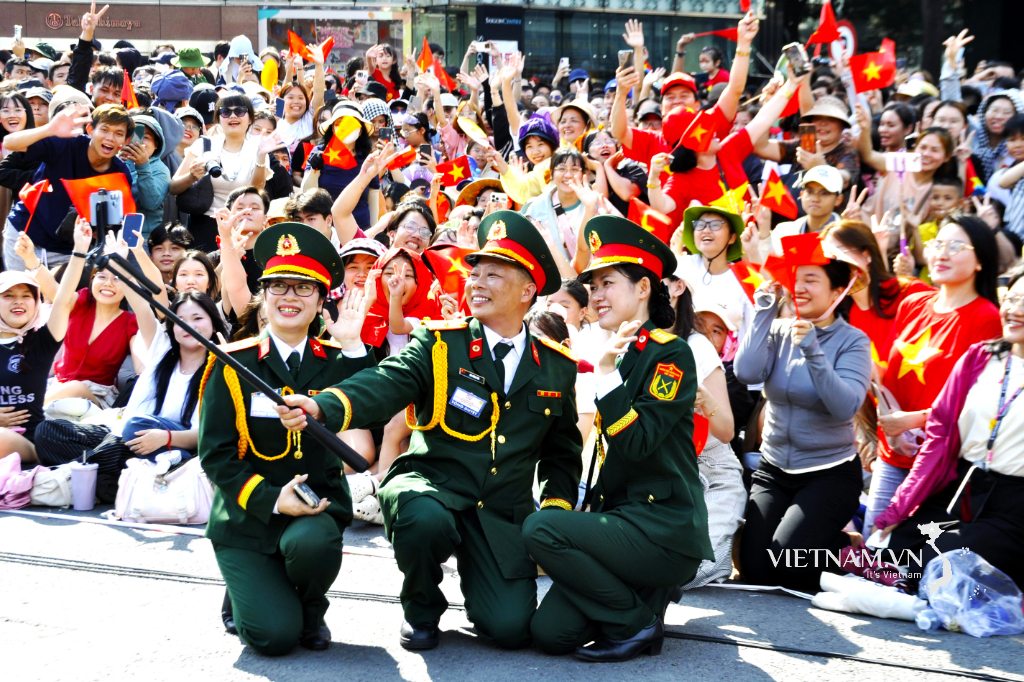When runners constantly put their bodies and minds under stress, they harm themselves, disrupt their hormonal balance, and ultimately affect everything else.
Kieran Abbotts, a graduate student at the University of Oregon specializing in human physiology, earned a master's degree in Metabolic and Exercise Physiology from Colorado State University. This expert delves into how chemicals function in the body during exercise and what happens when things go wrong.
According to Abbotts, there are two forms of training. The first is functional overtraining , where runners stress their bodies with strenuous exercises and long runs, but then allow sufficient time for recovery and adaptation. This training approach is ideal for building strength, improving performance, and ensuring adequate recovery.
And then there's functional overtraining , which many athletes might find similar, but there's a difference. "With functional overtraining, you're basically doing the same thing – training a lot, stressing your body, but not giving yourself enough time to recover. And then you start hurting yourself," Abbots says, adding that those injuries can take a long time to manifest, but they will definitely appear.
Nonfunctional overtraining is exactly the same as healthy training, except for the lack of adequate rest. And because everyone's rest requirements are different, it's easy to shift from healthy functional overtraining to harmful nonfunctional overtraining without realizing it. Without adequate rest, the body begins to weaken instead of strengthening.

Overtraining without adequate rest will lead to exhaustion for runners. (Image: Women Running)
Types of stress
Professional Ultrarunner Cat Bradley, 31, who lives in Hawaii, has experienced fatigue and exhaustion in various forms, including one that occurred right after her victory at the Western States in 2017. According to Bradley, winning a major tournament is great, but it also means you're under a lot of attention and pressure to stay ahead.
"After winning the Western States, I took a month off, but I was still running at a high level. I pushed myself to train and felt like I had a gun pointed at my back," Bradley said. "I really wanted to win the Western States, and after I did, a lot happened and I never got rid of that feeling of having a gun pointed at my back. After a while, it led to exhaustion. I had to take a mental break."
For many athletes, the pursuit of success, or improving performance, can create stress, leading to overtraining and non-functional training. How can you take a long break when you're winning and have signed a new sponsor?
The second time Bradley experienced burnout was when she faced a particularly stressful situation unrelated to running. The daily emotional stress in her personal life reached a point where everything else was affected, including running and training. When under stress, your body doesn't know, or doesn't care about, the cause. If there's stress in your life, everything else needs to adjust. It doesn't matter if that stress is just work, illness, or relationships.
When you overexert yourself or experience chronic stress, your body produces more "catecholamines"—hormones secreted by the adrenal glands during stress, such as epinephrine, norepinephrine, or adrenaline. "When the level of stimulation becomes chronic and there isn't enough time to recover, you enter a desensitized state," Abbotts explains. "This overstimulation also lowers plasma cortisol levels. Cortisol is a stress hormone and it plays a crucial role in your physiology."
When you exercise or put your body under stress, cortisol levels rise to help your body cope with the stress. But if you consistently need high cortisol levels, your body will eventually adjust downward. It will adapt, and then you will have low cortisol levels. This means you will have difficulty coping with physical and mental stress.
In February 2023, Bradley continued to feel exhausted, and it happened mid-race, while she was running the Tarawera 100-mile (160 km) race in New Zealand. Besides training for such a major race, Bradley was also working full-time, planning and preparing for her wedding which was just days after the race. On top of all that, traveling to New Zealand for the race was incredibly stressful for the runner.
"I was in fourth place, and I thought I could move up to third. But at the 136km mark, I passed out and hit my head on a rock," Bradley recounted. "We can talk about the reasons why I fainted, but I really think my brain stopped working. It just felt too much."
For Bradley, reaching a state of exhaustion was more related to external stressors than the actual running process. Now, aware of that, she continues to strive to avoid that "gun in backside" feeling by reducing her need to please others and focusing on self-care.
Another professional ultrarunner, Sally McRae, says avoiding burnout and overtraining is heavily involved in having a sustainable life. She started working at age 15 and soon realized that life can't just be about working as hard as possible to count down to retirement.

Emotional stress in life can also cause runners to burn out during training. Photo: Women Running
"Context is very important with burnout," McRae said. "My goal each year is to find the magic, the beauty, and the joy in what I do. Because it's my work, but it's also my life. And I truly believe that we have to rest; it has to be a normal part of life. Whether that's enjoying a vacation or just regular rest at home."
One of the most important aspects of resting and avoiding stress is reminding yourself that everyone is different. Excessive stress can lead to hormonal imbalances, which in turn affect everything.
"When you overtrain, you tend to experience mood swings and difficulty sleeping," Abbotts said. "Two of the standout things are exhaustion but an inability to sleep. And the other is irritability—mood swings and depression." When you put your body under stress for so long that the chemicals change, almost everything starts to fall apart.
You also never see the whole picture of a person on social media. "I know social media gives the impression that ultrarunners run over 60 km a day, competing in 160 km races every weekend," McRae says. "And that's crazy. You have to listen to your body." Accordingly, runners need to rest when they wake up and don't feel any joy in what they're doing, as well as when they wake up and feel sore or tired.
How to fix it
Elite ultrarunner and running coach Sandi Nypaver wants runners to pay more attention to their feelings and less to numbers or what other people are doing.
"I have to have honest conversations with my students," Nypaver said. "I need them to feel like they can tell me how they feel, because sometimes they think they have to stick to the training plan for the week no matter what. But the plan is never fixed, and it can be adjusted based on how you feel. Some weeks you might feel great and not need to change anything, while other weeks you might have to break the plan and do something else."
According to Nypaver, even at the highest level, everyone's training and rest schedules are different. "One thing that many runners really find hard to understand is that even when you're no longer in pain, you haven't fully recovered. A lot of studies show that things are still happening in your body for up to four weeks afterward, for certain races, depending on the distance."
Sometimes it's hard to recognize the signs that the pain has gone. Convincing runners that they need to relax, even after the soreness has passed, can be really difficult. But after a period of intense training and before the next training session, runners rarely end up saying things like, "I really wish I hadn't rested so much." Part of training is recovery.

Coach Nypaver during a moment of rest. According to her, rest is also an important component of the training process for athletes. Photo: Instagram / sandinypaver
"And, really, it's just about relaxing. Enjoy yourself. We live in a culture where we're always expected to do more," Nypaver said. "I wish instead of always thinking about doing more, we cared more about ourselves. So many of us want to be more relaxed, less stressed, happier, and enjoy life. We need to focus on that instead of trying to do too much. That's something I've always struggled with."
When you reach a state of exhaustion after prolonged periods of non-functional overtraining, extended rest is the only way for your body to recover and heal. "Once you've overtrained, you need to stop training," Abbotts emphasizes. "Some people may need to significantly reduce their training volume. You need a long period of rest."
There's nothing glamorous about resting. There are no bonuses in relaxing. But it's an absolutely crucial component of sustained performance and a much healthier, happier life.
Hong Duy (according to Outside )
Source link






![[Photo] Radiant smiles at the "Building Tet" festival in Da Nang](https://vphoto.vietnam.vn/thumb/1200x675/vietnam/resource/IMAGE/2026/02/12/1770872911216_ndo_br_nhan-qua-jpg.webp)

































































































Comment (0)